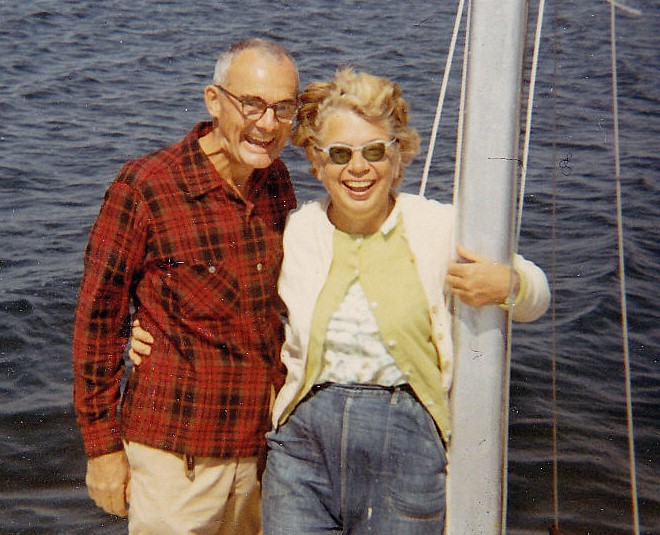Johns Hopkins UniversityEst. 1876
America’s First Research University
Suzanne Wright Fletcher, SPH ’73, had a big decision to make. As a college sophomore in 1960, she wanted to pursue medicine, but a favorite professor was dissuading her. So, she turned to an expert: her father, Dr. Robert D. Wright, one of the first professors in the Johns Hopkins Department of International Health.
Bob Wright wrote his middle daughter a long letter, extolling the merits of medicine and the joy he had found in his calling. He even channeled his hero, Benjamin Franklin, noting his important contributions to medicine.
The letter did the trick. Suzanne became an internist, clinical epidemiologist, and national leader in breast cancer screening and prevention research, studying public health at the Johns Hopkins Bloomberg School of Public Health with husband Robert Fletcher, SPH ’73. Today, they are professors emeriti in the Department of Population Medicine at Harvard Medical School after pioneering careers in public health.
“It is difficult to imagine a more fulfilling life,” Suzanne reflects.
In 1981 when Bob Wright died, Suzanne, along with her sisters Johanna Wright Parkes and Louise Wright Reza and their mother, Helen, memorialized Bob Wright’s passion for international public health and his instrumental role in the field by creating the Robert D. and Helen S. Wright Scholarship Fund at Johns Hopkins. For nearly 40 years, supporting this endowment, which provides financial assistance to students in the Bloomberg School of Public Health, has been a family affair.

Until her death in 2002, Helen gave outright gifts to the scholarship, which her family has continued to do.
“We’ve been involved in the international epidemiology clinical network and know so well the need,” Suzanne says of their gifts. “My parents felt strongly that funds needed to be available for students to be educated in this field.”
Each of the sisters has made provisions in her estate for the scholarship, and each is active in stewarding the scholarship, a joyful task that Johanna says has brought them closer together. “We are so proud of our parents and the exciting lives they gave us growing up,” she explains. “Their sense of commitment to what they believed in made them fantastic role models.”
“The scholarship fund carries forward what our parents spent their lives working toward,” adds Louise. “Our hope is that the fundamentals of preventative medicine will continue to expand, and people will explore new ways to get well and stay well.”
They’ve compiled the stories of Bob and Helen Wright’s life in a booklet that is given to the scholarship recipients. Included are Bob’s eloquent letter to then-college-aged Suzanne and his 1976 bicentennial address to the Maryland Public Health Association on his favorite Founding Father.
The biggest story within the pages, though, is Bob and Helen’s boundless love for adventure and community.
In the 1950s, Bob Wright founded the University of Virginia’s Department of Community Health. Helen, a Virginia State Board Member of the League of Women Voters, easily convinced her husband to work by her side on civil rights issues. In 1963, Bob joined the Hopkins Department of International Health and, shortly thereafter, he and Helen went to Nigeria, where he served as founding chair of the Department of Community Health at the new University of Lagos College of Medicine, a Hopkins initiative.
Bob Wright created the public health curriculum and a family planning clinic, developed an environmental and occupational health laboratory, and more. “He glowed with the whole idea of teaching,” says Louise, who lived in Nigeria as a college student.
When Bob and Helen Wright returned to Baltimore and Hopkins in 1968 their adventures continued. In 1972, the Wrights sailed to Bermuda and back in a 31-foot sailboat. The only other crew were two young men, Bard Stebbins and Dan Baker, sons of fellow Hopkins faculty.
With each Wright scholar, Suzanne witnesses her parents’ transformative spirits live on. “It’s so important that others are able to benefit from their wonderful life,” she says.
Topics: Alumni, Faculty and Staff, Bloomberg School of Public Health, Support Scholars